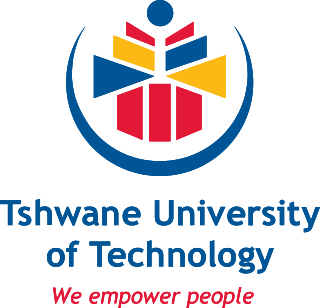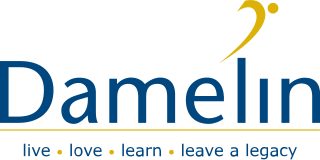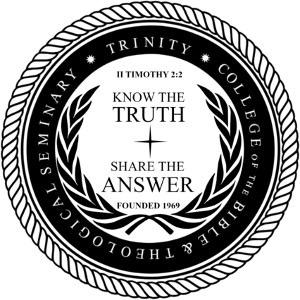Technical and further education or simply TAFE is the common name in English-speaking countries in Oceania for vocational education, as a subset of tertiary education. TAFE institutions provide a wide range of predominantly vocational courses.
A diploma mill or degree mill is a business that sells illegitimate diplomas or academic degrees. The term diploma mill is also used pejoratively to describe any educational institution with low admission and graduation standards, low job placement rate, or low average starting salaries of its graduates.
Higher education in Mauritius includes colleges, universities and other technical institutions. Public university education has been free to students since 2019. The sector is managed by the Higher Education Commission (HEC) which has the responsibility for allocating public funds, and fostering, planning and coordinating the development of post-secondary education and training. Formerly the Tertiary Education Commission, in 2020 it was reformed into the HEC and a separate Quality Assurance Authority (QAA) for auditing of qualifications.

Nelson Mandela University, formerly Nelson Mandela Metropolitan University, is a public university in South Africa. Established in 2005, it comprises the former University of Port Elizabeth, the Port Elizabeth Technikon and Vista University's Port Elizabeth campus. This university has its main administration in the coastal city of Gqeberha.

Tshwane University of Technology is a higher education institution in South Africa that came into being through a merger of three technikons — Technikon Northern Gauteng, Technikon North-West and Technikon Pretoria.
A technikon was a post-secondary institute of technology (polytech) in South Africa. It focused on career-oriented vocational training. There were 15 technikons in the 1990s, but they were merged or restructured as universities in the early 2000s.

Damelin is a private college founded in 1943 by Benjamin Damelin. It has 9 campuses in South Africa and is owned by Educor group. Damelin offers degrees, diplomas and other higher qualifications, but is considered a college instead of a university due to the regulations for tertiary institutions in South Africa. Damelin is the oldest and most profitable education subsidiary owned by Educor. By November 2012, over one million students had graduated from Damelin. In March 2024 it was deregistered for non-compliance along with other institutions under the Educor umbrella, CityVarsity, Intec and Lyceum College. The group has been accused by the Minister of Higher Education and Training of "unethical conduct, dysfunctional practices, bribery and other elements of corruption."
Vision International College was founded in 1974 in Launceston, Tasmania, Australia by Ken Chant, an Australian theologian and author. Now located in the Sydney suburb of Minto, New South Wales, the college provides vocational ministry training by distance education with an emphasis on community service. The Reverend Denis Plant now serves as the principal of the college.

Trinity College of the Bible and Theological Seminary, also known as Trinity College of the Bible, is a conservative evangelical Bible college and seminary located near Evansville, Indiana. Trinity offers distance education programs at undergraduate, graduate, and doctoral degree levels for self-directed adult learners. Programs include Certificate, Associate, Bachelor, Master, and Doctorate studies. In 2006, Trinity claimed more than 7,000 active students worldwide.
Abraham Lincoln University (ALU) is a private, for-profit online university based in Glendale, California.

The University of South Africa (UNISA) is the largest university system in South Africa by enrollment. It attracts a third of all higher education students in South Africa. Through various colleges and affiliates, UNISA has over 400,000 students, including international students from 130 countries worldwide, making it one of the world's mega universities and the only such university in Africa.

A certified teacher is an educator who has earned credentials from an authoritative source, such as the government, a higher education institution or a private body or source. This teacher qualification gives a teacher authorization to teach and grade in pre-schools, primary or secondary education in countries, schools, content areas or curricula where authorization is required. While many authorizing entities require student teaching experience before earning teacher certification, routes vary from country to country.
The University of Atlanta was a private, for-profit, distance education university headquartered in Atlanta, Georgia. It opened in Mobile, Alabama as Barrington University until it received accreditation in 2008. It relocated to Atlanta in 2008 and changed to University of Atlanta and was authorized by the State of Georgia's Nonpublic Post Secondary Education Commission. Until it closed June 30, 2013, the University of Atlanta was accredited by the Distance Education and Training Council.
Revans University, also known as The University of Action Learning (UAL), is the unaccredited degree-awarding body for the UK-based International Management Centres Association. Revans University's registered address is in Port Vila, Vanuatu, though it has also been associated with Boulder, Colorado. It has no physical campus and all its activities take place online. As of 2005, Revans University's partner organization IMCA was based in Buckingham, UK. IMCA provides accreditation of the Action Learning program of Gaia University and possibly others..
Warren National University, previously known as Kennedy-Western University, was an unaccredited private distance learning university that claimed to offer undergraduate and graduate degrees in the United States from 1984 to 2009. It has been described by federal investigators and news sources as a diploma mill, a designation it has disputed. Its administrative offices were located in Agoura Hills, California.

eta College is an international, private, single purpose college founded in 1983. It has nine campuses, and an online learning facility. The national office is located in Cape Town. Its purpose is to provide education for fitness sport and recreation needs. The language of instruction is English.

The IIE's Varsity College is an educational brand of The Independent Institute of Education. The IIE is the most accredited private higher education provider in SA and it is registered with the Department of Higher Education and Training.







